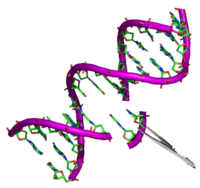
Transcriptomic Analysis Reveals Differentially Expressed Genes Associated with Pine Wood Nematode Resistance in Resistant Pinus thunbergii.
Sign Up to like & getrecommendations! Published in 2023 at "Tree physiology"
DOI: 10.1093/treephys/tpad018
Abstract: Pine wilt disease (PWD) (caused by the nematode Bursaphelenchus xylophilus) is extremely harmful to pine forests in East Asia. As a low-resistance pine species, Pinus thunbergii is more vulnerable to pine wood nematode (PWN) than… read more here.
Keywords: pinus thunbergii; pine wood; thunbergii; pwn ... See more keywords

Free-living nematodes associated with pine cones of Pinus thunbergii and P. taeda at Japanese coastal and inland forest sites
Sign Up to like & getrecommendations! Published in 2019 at "Nematology"
DOI: 10.1163/15685411-00003221
Abstract: We surveyed the distribution of nematodes in 56 cones of Pinus thunbergii collected from both live branches and on the forest floor in three coastal and inland habitats and in 11 cones of P. taeda… read more here.
Keywords: coastal inland; thunbergii taeda; pinus thunbergii; free living ... See more keywords

Effects of Temperature Factors on Resistance against Pine Wood Nematodes in Pinus thunbergii, Based on Multiple Location Sites Nematode Inoculation Tests
Sign Up to like & getrecommendations! Published in 2020 at "Forests"
DOI: 10.3390/f11090922
Abstract: Pine wilt disease (PWD) caused by the pinewood nematode (PWN) (Bursaphelenchus xylophilus (Steiner and Buhrer) Nickle) is a worldwide issue. Infection is considered to be promoted mainly by the increased air temperature, but it is… read more here.
Keywords: temperature; unaffected seedling; inoculation tests; rate ... See more keywords

Pinus thunbergii bark extract rich in flavonoids promotes hair growth in dorsal skin by regulating inflammatory cytokines and increasing growth factors in mice
Sign Up to like & getrecommendations! Published in 2022 at "Molecular Medicine Reports"
DOI: 10.3892/mmr.2022.12616
Abstract: Korean maritime pine bark (Pinus thunbergii) has been used as an alternative medicine due to its beneficial properties, including anti-inflammatory effects. To date, the anti-inflammatory and hair growth-promoting effects of Pinus densiflora bark extract have… read more here.
Keywords: growth; pinus thunbergii; hair growth; bark ... See more keywords